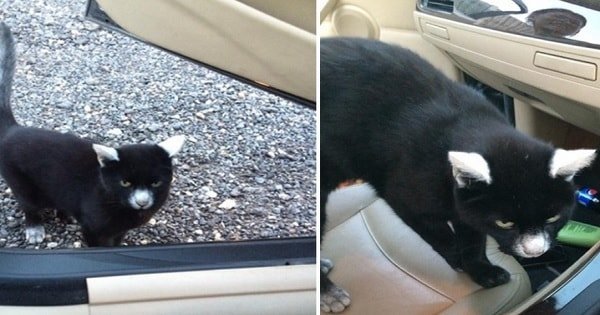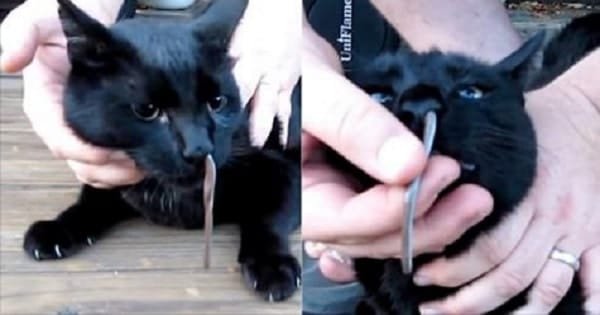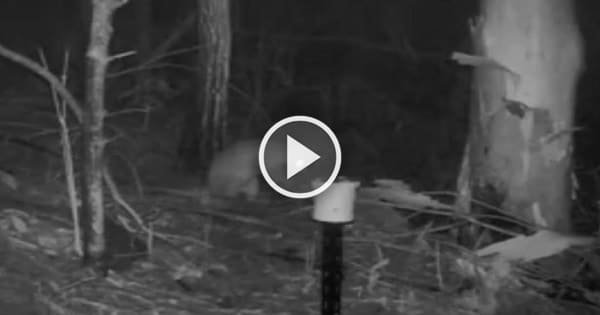TEXAS - The big-rig truck was literally full of cats: Theo, who had a bit of a sneeze. Vennessa, who was acting much like a diva. Two Thomases. And Buck, who, to everyone’s shock, was a girl.
All of them had been living in shelters in southeast Texas. However, with Hurricane Harvey leaving untold numbers of family pets stranded, these cats were being shipped to an emergency shelter across the country to free up space in local facilities for animals being picked out of the floodwaters.
Harvey has initiated a huge shuffling of thousands of shelter animals. They’re making room so that rescued pets may remain in their hometowns, increasing the chances that they will be reunited with their owners, who are displaced themselves, said Kenny Lamberti, who is vice president of the companion animals department of the Humane Society of the United States.
“The priority is keeping the rescued pets with their families,” Lamberti stated.
Animal rescuers, he went on to say, are acting on lessons learned during Hurricane Katrina, when abandoned animals were turned away from shelters that became too full and were not allowed in many human evacuation centers. Back at that time, volunteers from other states, though well-intentioned, took stranded pets with them to their home clinics, making it very difficult for owners to find them, said Lamberti, who adopted a Katrina-displaced pitbull-mix he named Rubin Hurricane Carter.
On Friday, Emancipet, which is a low-cost veterinary clinic in a strip mall on southeast Houston’s Wayside Drive, became a kitty way station when the big rig from the Humane Society pulled up with 30 cats from Dickinson and League City from along the coast that were being relocated to Seattle after those towns flooded.
The clinic was successfully transformed into a veritable kitty triage center, an assembly line of care in which the cats were weighed and examined before being placed in cages outfitted with litter boxes and toys. All of them would all be spayed or neutered and micro-chipped as needed at Emancipet before they headed northwest.
“Six-point-nine pounds,” one of the technicians stated, weighing a dark gray cat just prior to giving it a hug.

A cat from League City, Texas, is brought from a big-rig truck to the Emancipet clinic in Houston. (Hailey Branson-Potts / Los Angeles Times)
“She’s a girl!” Dr. Adrian Knowles stated, laughing, after getting a good look at the cat whose papers said it was named Buck. “Check the genders, people.”
Emancipet accepted in 13 cats from the municipal animal shelter in League City, a town that was hard-hit by flooding.
Kim Schoolcraft, who is the League City shelter’s animal services manager, said her facility had taken in about 35 cats and dogs since the storm hit. A third of them had been reunited with their families, and one cat, who was brought in with various facial injuries, died of hypothermia, she said.
It’s been a “massive effort” to move animals to and from the facility, which has offered to house the claimed pets of displaced families for a month without charge, she added.
Friday was the very first day back to work for the staff at Emancipet. When Chief Executive Amy Mills, who is based in Austin, walked in, she literally had tears in her eyes and hugged each worker.
“I’m so glad you’re OK,” she stated.
As they waited for the cats to arrive, the staff began trading stories about their Harvey experiences, including the tale of one employee who spent one whole night in her RAV4 in the middle of a flooded road.
They’re all quite used to storm warnings on the Gulf Coast. They hadn’t realized, however, this would be a huge disaster.
The clinic workers considered themselves very lucky to have been spared flooding of their own homes and injury. However, they hadn’t expected to be stuck in their homes for days on end, often without electricity.
They even joked about the “Hurricane Harvey diet,” scrounged from whatever’s left in the pantry: a can of green beans, some ravioli, crackers.
Knowles, who is 26 and the lead surgeon, said she had been at home for about four days when, on Wednesday, she looked outside and it wasn’t raining.
“It was like, ‘I’m going! I’m going outside!’” she noted. When she got to a grocery store, there was an hour-long line out the door, and it literally wrapped around the entire inside of the store. She got in the line and popped down aisles as it progressed. She had a bad hankering for ice cream, and she did manage to score some.
The others had some similar experiences. Signs actually limiting your purchases of eggs, milk and water. The mad dash for bread.
Knowles, who moved to Houston from Florida a month ago, explained that she had survivor’s guilt. Family and friends from all across the country have called nonstop after seeing harrowing video of flooding on the news. She feels bad when she tells them she’s doing fine, knowing so many people lost everything.
It wasn’t until she saw Highway 288, her route to work, literally turned into a lake on live TV that it sunk in for her that she really was living in the middle of this disaster.
“The feeling you get when you watch TV and you get on Facebook and see ‘Pray for Houston’ and you realize that’s you — it’s jarring,” Knowles stated.
Amber Lozano, who is n assistant surgery technician, had been anxious, too, safe ahnd comfortable at home but trapped by flooded roads and unable to lend a hand.
When she was finally able to get out on Wednesday, she picked up two dozen cats from a local shelter and drove them to Austin to make room for displaced animals.
“It was good to just be able to do something,” she stated.
Mills, who is the Emancipet CEO, said it meant a lot to the staff to be working with the relocated cats.
Magan Gonzalez, a recovery technician, left, and Dr. Adrian Knowles examine a cat at the Emancipet clinic in Houston. (Hailey Branson-Potts / Los Angeles Times)
“Today has been awesome,” she stated. “It’s the culmination of a lot of worry and wondering how to be useful.”
She knows perfectly well that there’s a hard slog ahead with animal recovery efforts. Public health officials are saying that the standing water left behind by the storm will bring lots of mosquitoes, which transmit heart-worms to dogs. Mills is already working on getting grants for heart-worm medication.
And she knows the rescues will more than likely go on for months.
More relocated dogs and cats will most certainly be coming through the Emancipet clinic, she said.
Someone half-jokingly asked if they’d would accept in alligators. Of course, the staff laughed nervously.
Source: www.latimes.com






